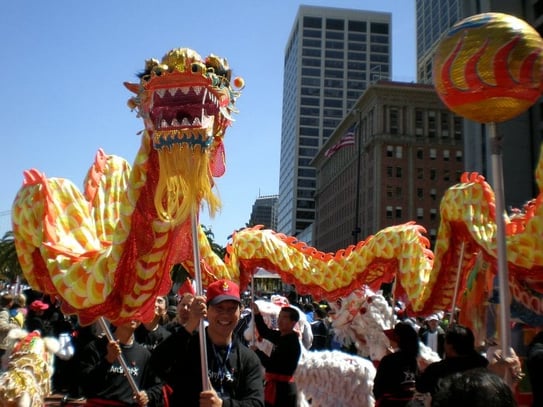Chinese New Year is Friday, Feb. 12, but the holiday is actually celebrated for 16 days – starting with Chinese New Year's Eve and ending with the Lantern Festival – and a great deal of preparations take place in the weeks leading up to New Year’s Eve. Many of the New Year celebratory activities are deep rooted in tradition and customs, but some forms of celebration are quite new. What's also great, is that many cultures celebrate the same Lunar New Year including Korean, Vietnamese, Burmese and Mongolian cultures just to name a few!
In addition to fun facts about the holiday that we shared with you previously, here’s a day-by-day guide for ringing in the Year of the Ox this year!
New Year’s Eve: Feb. 11, 2021
- Put up decorations – if your home isn’t already decked out in red lanterns, paper cutouts and paintings, this is the day to get it done. Red decorations are thought to keep evil away and welcome blessings, health and peace.

- Offer sacrifices to ancestors – food, drink and other items of importance are placed in front of a shrine honoring loved ones passed. Offering sacrifices to ancestors shows respect and provides protection from ancestral spirits.
- Reunion dinner – this large family gathering brings generations together around a table to enjoy food and time together.
- Watch CCTV’s New Year Gala – the televised event features singers, dancers and performers of all types, leading up to the arrival of Chinese New Year at midnight.
- Give money envelopes – red envelopes containing money are given out, most commonly to kids from older members of the family. Because red is China’s lucky color, it is considered lucky money.
- Ring a bell – ringing a large bell is believed to drive away bad luck and bring good fortune. At midnight on New Year’s Eve many people ring bells at home, at temples and all-around town.
New Year’s Day: Feb. 12, 2021
- Set off firecrackers – the moment the New Year arrives, there is a symphony of fireworks and firecrackers that go off in China. Many families set off firecrackers of their own. It is believed that the louder they are, the more luck they will bring.
- Wear new clothes – on the first day of the New Year, it is customary to put on new clothes and send New Year wishes to family and friends.
- Attend a public celebration – celebrations are held in parks, at temple and in places like Hong Kong and Macau, you will even see lion and dragon dances.

New Year, Day 2: Feb. 13
- Give gifts and sacrifice – on this day, people offer sacrifices to the God of Wealth, wishing for a luckier and more prosperous year. It is also customary for married daughters to bring gifts and red money envelopes to their parents and other relatives.
New Year, Days 3-7: Feb. 14-18
- Spend time together – on these days, people spend the majority of the time visiting relatives and friends. This is also considered to be a safe time to clean/sweep your home without fear of sweeping away any good luck.
New Year, Day 8: Feb. 19
- Return to work – people will generally return to work on this day, and most business will reopen. That is because eight is the luckiest number in China.
New Year, Day 15: Feb. 26
- Lantern Festival– the last celebration of the New Year festivities ends with sending lanterns into the sky.

To learn more about Chinese New Year, check out the Chinese New Year Website.





Leave a Comment